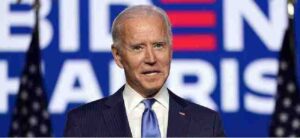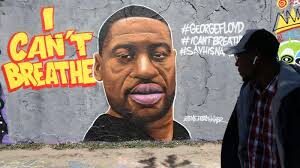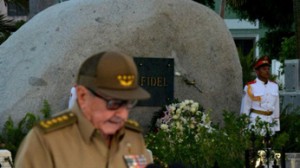Eurosceptic and far-right parties have seized ground in elections to the European parliament, in what France’s PM called a “political earthquake”.
The French National Front and UK Independence Party both performed strongly, while the three big centrist blocs in parliament all lost seats.
The outcome means a greater say for those who want to cut back the EU’s powers, or abolish it completely.But EU supporters will be pleased that election turnout was slightly higher.
It was 43.1%, according to provisional European Parliament figures. That would be the first time turnout had not fallen since the previous election – but would only be an improvement of 0.1%.
Highlights
(based on exit polls/provisional results)
• France National Front storm to victory – 25%, 25 seats; Centre-right UMP 21%; President Hollande’s Socialists a poor third with 14% – lowest ever EP score
• Britain Eurosceptic UKIP in first place, with 27%, Conservatives on 24% and Labour about 25%, Greens beating Lib Dems
• Italy Centre-left PM Matteo Renzi scores strong 40%, fending off ex-comic Beppe Grillo’s anti-establishment Five Star with 22%, and ex-PM Silvio Berlusconi’s Forza Italia with 16%
• Germany Angela Merkel wins another election – 35% for her Christian Union, 27% for the centre-left SPD. Eurosceptic AfD score strong 7%
• Greece Partial results show far-left Syriza on 26%, PM Antonis Samaras’ New Democracy on 23%. Far-right Golden Dawn set to get three MEPs, with 9%
“The people have spoken loud and clear,” a triumphant Marine Le Pen told cheering supporters at National Front (FN) party headquarters in Paris.
“They no longer want to be led by those outside our borders, by EU commissioners and technocrats who are unelected. They want to be protected from globalisation and take back the reins of their destiny.”
Provisional results suggested the FN could win 25 European Parliament seats – a stunning increase on its three in 2009.
The party also issued an extraordinary statement accusing the government of vote-rigging.
Hard-left gains
Across the board, the centre-right European People’s Party was set to win 212 out of the 751 seats, with 28.23% across the bloc, according to estimated results issued by the European Parliament. That would make it the biggest group – but with more than 60 seats fewer than before.
That put it ahead of the Socialist group with 186 seats (24.77%), Liberals with 70 (9.32%) and Greens 55 (7.32%).
EPP leader Jean-Claude Juncker insisted the majority of people had voted to be a part of Europe.
“The extreme right, contrary to what some of the media has said, did not win this election,” he said.
“We will have a clear pro-European majority in this house,” added the man who is the frontrunner to be the next president of the European Commission.
The Eurosceptic Europe of Freedom and Democracy group, incorporating the UK Independence Party (UKIP), appeared to have about the same number of seats as last time.
But the number of non-attached right-wing MEPs is set to rise, boosting the Eurosceptic camp.
UKIP leader Nigel Farage, commenting on his party’s success in Britain, said: “The inevitability of European integration ends tonight.”
The anti-bailout hard-left group in parliament was set to make big gains, largely thanks to Syriza in Greece and United Left in Spain, gaining about 12 seats.
Laurence Peter, BBC News, Brussels
The latest provisional results confirm a big setback for the centre-right EPP bloc, which is on course to lose about 60 seats, despite still coming top overall.
One of the big stories of the night is the surge in the number of “Others” and “Non-Inscrits” – that is, Eurosceptic MEPs who are independent of any of the existing party groups. There will be about 100 of them. So it will be fascinating to watch how some of the other Eurosceptic groups try to woo them.
It is clear the UK Conservatives have a real fight on their hands to win allies for their reform agenda in Europe. The results so far show that their ECR group has lost seats – perhaps 10 or more. That is probably because of Conservative losses and UKIP gains in Britain.
The election has delivered a big blow to the political establishment in Europe – the establishment that pursued austerity and bank bailouts, at great cost to millions of ordinary voters.
Martin Schulz, the former Socialist president of the European Parliament – said of the FN victory: “It’s a bad day for the European Union, when a party with a racist, xenophobic and anti-Semitic programme gets 25% of the vote.”
The election is the biggest exercise in multi-national democracy in the world. The vote will affect the lives of the EU’s 500 million citizens.
The parliament’s powers have expanded since the last election in 2009, and it is hoping to have a decisive say in who gets the EU’s top job, president of the European Commission. – BBC News
Thai coup: Leader Gen Prayuth receives royal endorsement
Thailand’s military leader has received royal endorsement at a ceremony in the capital, Bangkok, after taking power in a coup last week.
Army chief Gen Prayuth Chan-ocha was formally appointed to run the nation at the army headquarters.
The 86-year-old monarch, King Bhumibol Adulyadej, did not attend the ceremony.
The military seized power in the South East Asian nation last week, saying it planned to return stability to Thailand after months of unrest.
The move followed six months of political deadlock as protesters tried to oust the government of Prime Minister Yingluck Shinawatra. At least 28 people were killed and several hundred injured over the course of the protests.
But the coup – which removed an elected government – has drawn widespread international criticism.
Small anti-coup protests took place in Bangkok over the weekend, despite a military ban on gatherings of more than five people.
Experts have also warned that the coup is unlikely to heal divisions in a nation in which politics have become highly polarised.
‘No benefit’
Gen Prayuth, dressed in white military uniform, received the royal endorsement on Monday morning.
“To restore peace and order in the country and for sake of unity, the king appointed Gen Prayuth Chan-ocha as head of the National Council of Peace and Order to run the country,” the royal command seen by AFP news agency said.
The monarchy is highly respected and royal endorsement is seen as key to legitimising the takeover.
Speaking afterwards, Gen Prayuth said the most important thing was “to keep peace and order in the country”.
Elections would take place as soon as possible, he said, but gave no timeframe. He also said he would have no choice but to use force if protests continued.
The ruling junta is expected to set up a national legislative assembly that will draw up a temporary constitution with a new prime minister.
Since taking power the military has summoned and detained dozens of key political figures, including Ms Yingluck. Journalists and academics are also among those who have been called in.
Tight controls have also been placed on the media. – BBC News




